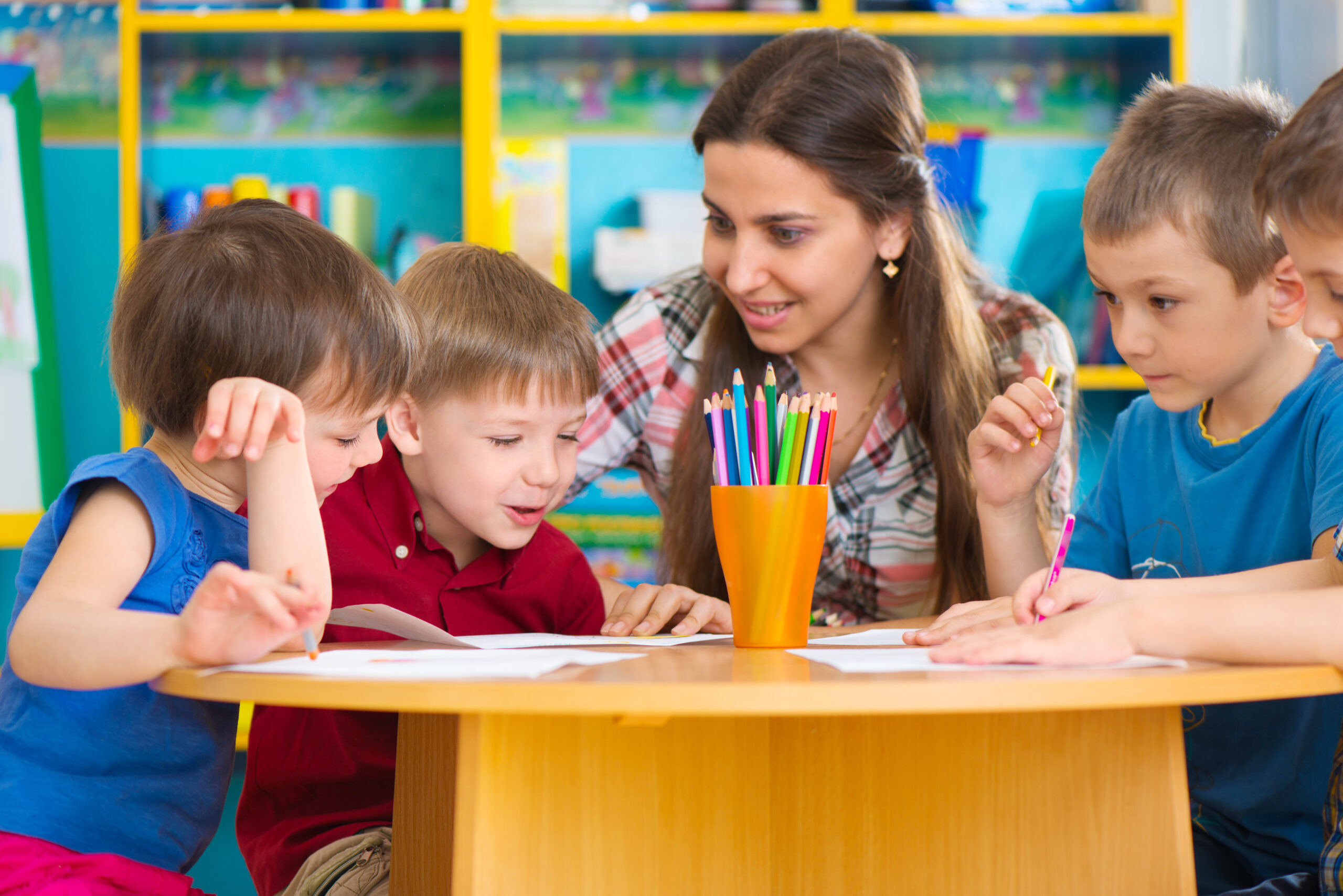Children can have more opportunities for hands-on, physical play, exploration, and social interaction if screen time is limited, which can help them develop and thrive overall.
Physical development:
Excessive screen time can lead to a sedentary lifestyle, which can negatively impact physical development, including muscle strength, coordination, and overall health.
Physical development in children refers to the changes and advancements in their physical abilities, such as gross and fine motor skills, coordination, strength, and dexterity, as well as changes in their physical appearance and growth.
During early childhood, children's physical development is rapid and diverse. They develop fine motor skills through activities such as drawing, cutting, and writing. Gross motor skills, including balance, coordination, and agility, are developed through running, jumping, and playing games.
As children grow, they continue to develop and refine their physical skills, as well as increase their strength and endurance. During the teenage years, significant changes occur as the body grows and matures, including the development of sexual maturity.
It's important for children to have opportunities for physical activity and play, as this not only supports their physical development but also helps them to develop social and emotional skills. This can include activities such as playing sports, dancing, and participating in physical games and challenges.
Adequate sleep, a balanced diet, and regular exercise are also important factors in promoting healthy physical development in children. Encouraging children to lead an active lifestyle and making physical activity a part of their daily routine can help set them on a path towards a lifetime of good health.
Brain development:
Too much screen time can disrupt the development of important cognitive and social-emotional skills, such as attention, self-regulation, and empathy.
Brain development in children refers to the growth and maturation of the brain from birth to adulthood. This process involves changes in the structure and function of the brain, which enable children to learn, think, and experience the world around them.
During the first few years of life, the brain undergoes a period of rapid development and growth, during which time it is especially receptive to new experiences and inputs. This is a critical time for brain development and lays the foundation for future learning, behavior, and well-being.
Brain development is influenced by a variety of factors, including genetics, nutrition, and early life experiences. Positive experiences, such as nurturing relationships, stimulation, and play, can support healthy brain development, while negative experiences, such as poverty, neglect, and abuse, can have a detrimental effect.
As children grow and develop, their brain continues to change and mature, allowing for increased cognitive abilities, such as attention, memory, and problem-solving skills. Regular physical activity, educational opportunities, and exposure to new experiences can help support continued brain development.
It's important to remember that brain development is a lifelong process and that continued learning and stimulation can help support brain health throughout life. Encouraging children to engage in a variety of activities that challenge their minds and expose them to new experiences can help set them on a path towards a lifetime of healthy brain development.
Sleep:
Excessive screen time before bedtime can interfere with sleep, leading to fatigue and decreased ability to concentrate.
Sleep is an important aspect of a child's physical and cognitive development. It plays a crucial role in regulating the body and mind and helping children to feel rested and refreshed.
The amount of sleep a child needs varies with age, but as a general guideline, infants and young children typically need around 12-14 hours of sleep per day, while school-aged children and teenagers typically need 9-11 hours.
A lack of sleep can have a negative impact on a child's health, mood, behavior, and cognitive function, including attention, memory, and academic performance. On the other hand, getting enough sleep can help children to feel more alert, focused, and better able to handle the demands of daily life.
Establishing a consistent bedtime routine and a sleep-conducive environment, such as a cool and dark room, can help promote better sleep for children. Limiting caffeine and screen time before bed, as well as encouraging physical activity during the day, can also help improve sleep quality.
It's important to remember that sleep needs can change as children grow and develop, and that parents and caregivers should regularly reassess their child's sleep needs and adjust accordingly. Ensuring that children get adequate and quality sleep can help support their overall health and well-being.
Balance:
Spending too much time in front of screens can limit opportunities for hands-on, physical play, and interaction with the environment, leading to a lack of balance in a child's daily activities.
Balance is a critical component of physical development in children, as it helps to support their overall coordination and stability. Good balance allows children to perform activities such as running, jumping, and playing sports with ease and confidence.
Balance is developed and refined over time, beginning in early childhood and continuing to mature throughout the teenage years. Gross motor activities, such as crawling, walking, and playing on playground equipment, provide opportunities for children to practice and improve their balance.
As children grow and develop, it's important for them to continue to challenge and refine their balance through physical activities, such as gymnastics, dance, and sports. In addition, exercises that target the core muscles, such as yoga, tumbling, and martial arts, can help to improve balance.
Playing games that require balance, such as hopscotch and Simon says, can also be a fun way for children to practice and improve their balance. Encouraging children to engage in a variety of physical activities and exercises that challenge their balance can help to support their overall physical development.
It's important to remember that balance can be impacted by factors such as illness, injury, and changes in growth and development, and that parents and caregivers should regularly assess and address any issues related to balance. Maintaining good balance is an important aspect of promoting overall physical health and well-being in children.
Attention span:
Over-exposure to screens can impact children's ability to focus and maintain attention, making it harder for them to pay attention to other tasks or activities.
Attention span refers to the amount of time a person is able to concentrate on a task or activity without becoming distracted. In children, attention span can vary based on a variety of factors, including age, development, and individual differences.
In general, younger children have shorter attention spans and are more easily distracted, while older children and teenagers are able to sustain attention for longer periods of time. However, even older children and teenagers can struggle with attention and focus, particularly in situations that are boring or uninteresting.
Attention span can be improved and developed through regular practice and exposure to new and challenging experiences. Engaging in activities that require sustained focus and attention, such as reading, puzzles, and playing games that require strategy, can help to improve attention span.
It's also important for children to get adequate sleep, physical activity, and a balanced diet, as these factors can have a significant impact on attention span and overall cognitive function.
In addition, parents and caregivers can help to support attention span by creating a positive and engaging learning environment, and by providing structure and routines that help children to focus and concentrate. Setting achievable goals and providing regular feedback and encouragement can also help to maintain children's focus and attention.
It's important to remember that attention span can be impacted by a variety of factors, including stress, illness, and technology use, and that parents and caregivers should regularly assess and address any issues related to attention and focus. Maintaining good attention span is an important aspect of promoting overall cognitive health and well-being in children.
Social skills:
Spending too much time with screens can limit opportunities for face-to-face interaction and the development of important social skills, such as communication and cooperation.
Social skills refer to the ability to effectively interact and communicate with others in a variety of social situations. Developing social skills is an important aspect of a child's overall development, as it lays the foundation for healthy relationships and positive experiences in life.
Social skills begin to develop from a very young age, as children interact with caregivers, family members, and peers. As children grow and develop, they learn to understand and respond to social cues, communicate their own needs and wants, and form relationships with others.
Play and interaction with other children provide valuable opportunities for children to practice and develop their social skills. Engaging in activities such as playing games, participating in sports, and joining clubs and groups can also help children to develop social skills and learn to work effectively with others.
It's also important for children to have positive and supportive relationships with adults, such as parents, teachers, and other caregivers. These relationships can help to build self-esteem, provide guidance and support, and model positive social behavior.
In addition, parents and caregivers can help to support social skill development by teaching children social skills and strategies, such as sharing, taking turns, and active listening. Providing positive feedback and reinforcing desired behavior can also help to build children's confidence and social skills.
It's important to remember that social skills can be impacted by a variety of factors, including cultural background, developmental differences, and personal experiences, and that parents and caregivers should regularly assess and address any issues related to social skills. Encouraging and supporting the development of positive social skills is an important aspect of promoting overall social and emotional health and well-being in children.







